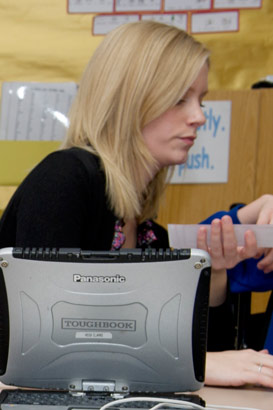
Under the Children and Families Act 2014 (Part 3), education providers accommodate the requirements ('must', 'should') of the 2014 special educational needs/disability framework – Children and Families Act (Part 3) and its associated regulations and statutory guidance.
Different professional roles pick up different legal responsibilities under the 0-25 SEND Code of Practice (2015) and the Special Educational Needs and Disability Regulations 2014. In schools, these professional roles are:
- Governing body;
- Schools;
- Headteachers;
Click here to read more about headteacher responsibilities – some have already been discussed. The roles of SENCOs and teachers are discussed further below.
- SENCOs;
- Teachers.
Class teachers and subject teachers are responsible for children with special educational needs/disabilities. These statements are from the 0-25 SEND Code of Practice (2015):
- 'Teachers are responsible and accountable for the progress and development of the pupils in their class, including where pupils access support from teaching assistants or specialist staff.'
- 'The class or subject teacher should remain responsible for working with the child on a daily basis, even when interventions involve group or one-to-one teaching away from the main class or subject teacher...'
- 'They should work closely with any teaching assistants or specialist staff involved, to plan and assess the impact of support and interventions and how they can be linked to classroom teaching.'
- 'Working with the SENCO, [they] should revise the support in light of the pupil's progress and development, deciding on any changes to the support and outcomes in consultation with the parent and pupil.'
(0-25 SEND Code of Practice, sections 6.36, 6.52, 6.54)

'The provision made for pupils with SEN should be recorded accurately and kept up to date. As part of any inspection, Ofsted will expect to see evidence of pupil progress, a focus on outcomes and a rigorous approach to the monitoring and evaluation of any SEN support provided. Ofsted publish more detail about their expectations in their inspection guidelines.'
(0-25 SEND Code of Practice, 2015, sections i)
Class and subject teacher responsibilities under the 0-25 SEND Code of Practice (2015) can be categorised under the three headings featured in the list that follows.
Class and subject teachers will work closely with and be supported by the SENCO. Under the previous framework, the SENCO had direct responsibility for supporting children/young people with special educational needs/disabilities. However, under the new 0-25 SEND Code of Practice (2015), their role is more strategic and supportive.
Teachers have responsibilities:
- Directly to children/young people at risk of or with special educational needs and disabilities (eg identification, assessment, intervention, monitoring and review);
- Working with families;
- Working with other professionals.
To find out more about teacher responsibilities in these areas, click on
each of the bullet points below. Please note that these outlines are
for information
only. Teachers need to refer to the 0-25 SEND Code of Practice (2015) and the
SEND Regulations 2014 for specificity and detail.

Search for the term 'role of the SENCO' in the:
Special Educational
Needs Code of Practice (2001) and 0-25 SEND Code of Practice (2015).
Discuss and/or make notes on:
- What has changed about the SENCO's role between
the
2001 and 2014 Codes? - How have the expectations/responsibilities of teachers changed?
- Review your current responsibilities in the light of the 2014 SENCO role. Note down the changes and actions you are planning as a result.

Legislation and guidance
- Children and Families Act 2014
- Special Educational Needs and Disability Code of Practice: 0-25 years (Department for Education/Department of Health, 2015)
Other publications
- Department for Education (2015) Governors' Handbook: For governors in maintained schools, academies and free schools. London: DfE. [Online at: https://www.gov.uk/government/publications/governors-handbook--3; accessed: 27.2.15]